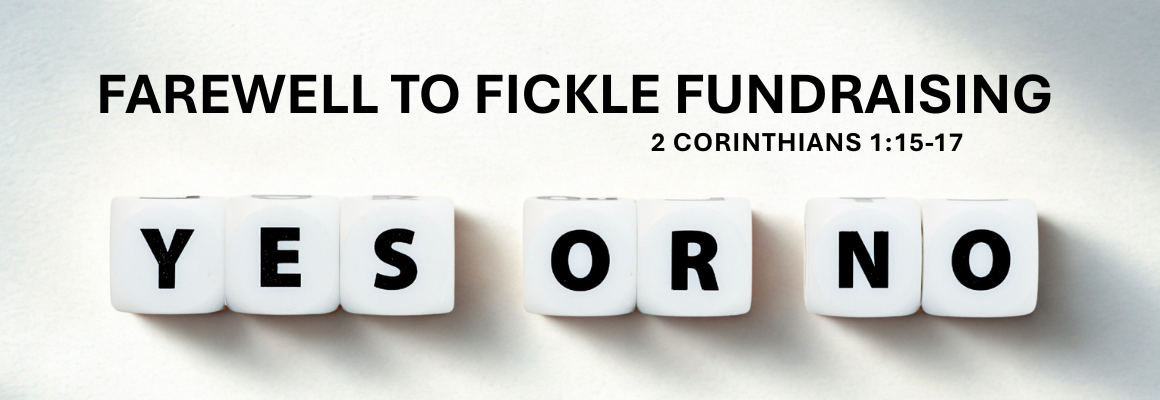David was experiencing the lowest moment of his life. His son, Absalom, rebelled forcing David and his household to escape across the Jordan River. They arrived at the little village of Mahanaim exhausted, hungry, and thirsty. There, a wealthy man named Barzillai the Gileadite appeared with many gifts: wheat, barley, flour, roasted grain, honey, and cheese from cows’ milk (see 2 Sam. 17: 27-29). His generosity and David’s response teach us four important lessons about deepening our donor relationships.
Generosity
Perhaps Barzillai had met David previously or perhaps he just knew his reputation. Either way he developed a deep loyalty for David which resulted in rich generosity. A major donor was asked if he would support a campaign and he responded, “I don’t know much about this project, but I’ve known the president for years and trust his judgment. My wife and I would consider a gift of $500,000.” Generosity springs up from a loyal heart. Barzillai’s gifts gave David strength to fight another day.
Humility
On David’s return to Jerusalem, he didn’t forget who helped him win the battle and invited Barzillai to come live in the palace. Barzillai graciously declined the invitation, “How many more years will I live, that I should go up to Jerusalem with the king? I am now eighty years old. Can I tell the difference between what is enjoyable and what is not? Can your servant taste what he eats and drinks? Can I still hear the voices of male and female singers? Why should your servant be an added burden to my lord the king?” (2 Sam. 19: 34-35). Some donors don’t want recognition, but you should offer anyway.
Sacrifice
Barzillai then made an unusual request and asked David to take his servant, Kimham, to the palace instead of him. David was pleased to respond, “anything you desire from me I will do for you” (2 Sam. 19:38). One important way to honor your major donors for their loyalty is to listen to their ideas and implement them whenever you can. If they ask for a favor, respond with the generosity they have shown to you. This was true friendship. “The king kissed Barzillai and bid him farewell, and Barzillai returned to his home” (2 Sam. 19:39).
Legacy
Every nonprofit wants to know how to reach the next generation of donors. Typically, grandparents and parents have institutional loyalty, but children and grandchildren lose interest. One key way to capture the interest of the next generation is to honor the memory of the previous generation. David told Solomon to honor the descendants of Barzillai because he stood by him when times were tough (see 1 Kings 2:7).
Think About This: Famed L. A. Dodgers’ coach Tommy Lasorda said, “You give loyalty, you’ll get it back. You give love, you’ll get it back.” Sounds like the principle of “sowing and reaping.”
Response: Father, I praise you for our faithful donors who have stood by us in good times and bad times. Help me honor them for their loyalty.






